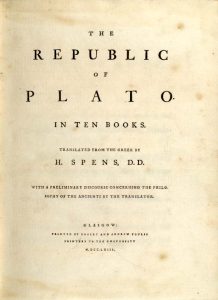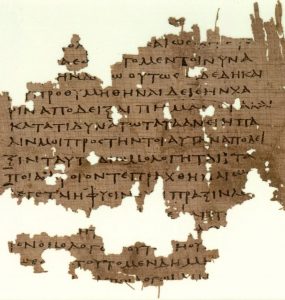The Republic – Plato – c. 380 BCE

Posted by Steven on 1/11/2013, 12:11:19
More mentions Plato’s The Republic once or twice in Utopia and this invites comparison. There are some similarities, but many more differences.
Both are communist societies that abjure private property and money. Poverty cannot exist, as the equitable sharing of resources is guaranteed.
Utopia is an egalitarian society and a democracy, the Republic is neither. The Republic has a strict caste system with a “Guardian” class at the top. Mobility between classes is rare: if you are born the son of a stonemason you will become a stonemason. The Republic is ruled by a philosopher king chosen for life from among the Guardian class. In Utopia there is universal (male? he doesn’t say) suffrage, and everyone is eligible for public office. Children traditionally take up the occupations of their parents, but they are not required to.
The Republic has a state religion, but observances are largely ceremonial. Utopia allows religious freedom within a broad monotheistic context, but religious life is interwoven into public life.
Utopia has a very conventional family life and conservative sexual mores. The only unconventional idea is that the bride and bridegroom are shown naked to each other before they are married so they know what they are getting. The Republic has traditional marriage for all classes except the Guardians; they are scientifically bred each year to produce the best possible outcome, and children and parents are unknown to each other.
The Republic is a militaristic state which glories in war. Its highest class, the Guardians, are the warriors. In Utopia all citizens, male and female, have military training, but they prefer not to fight if possible. The gold they accumulate in foreign trade is used principally to hire mercenaries or bribe enemies so that Utopians do not have to risk their lives in battle. They are so averse to bloodshed that the job of slaughtering cattle is done by slaves (who are convicts or prisoners of war, not a hereditary class).
Utopia prizes knowledge, welcomes new ideas, and encourages self study. They aren’t afraid of being corrupted by outside influence. In the Republic all arts and ideas that would undermine public morale are prohibited, and this includes all fiction.
I think I would much rather live in Utopia than The Republic.
